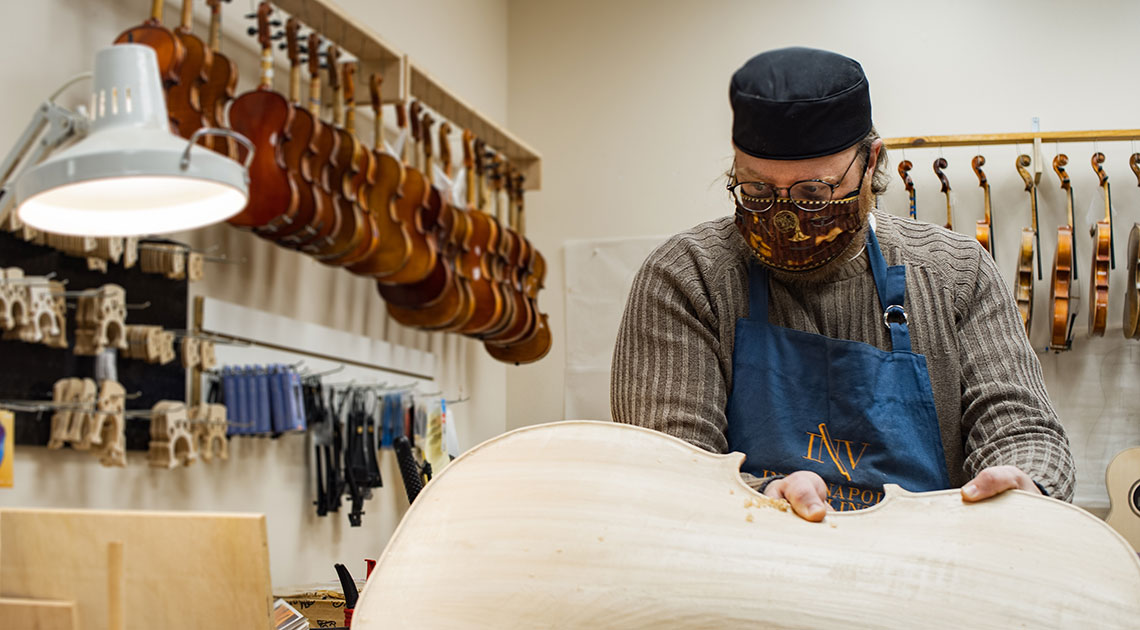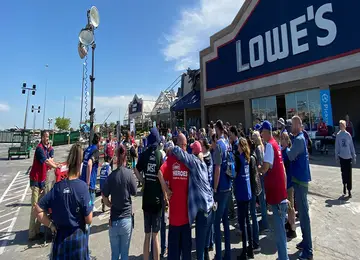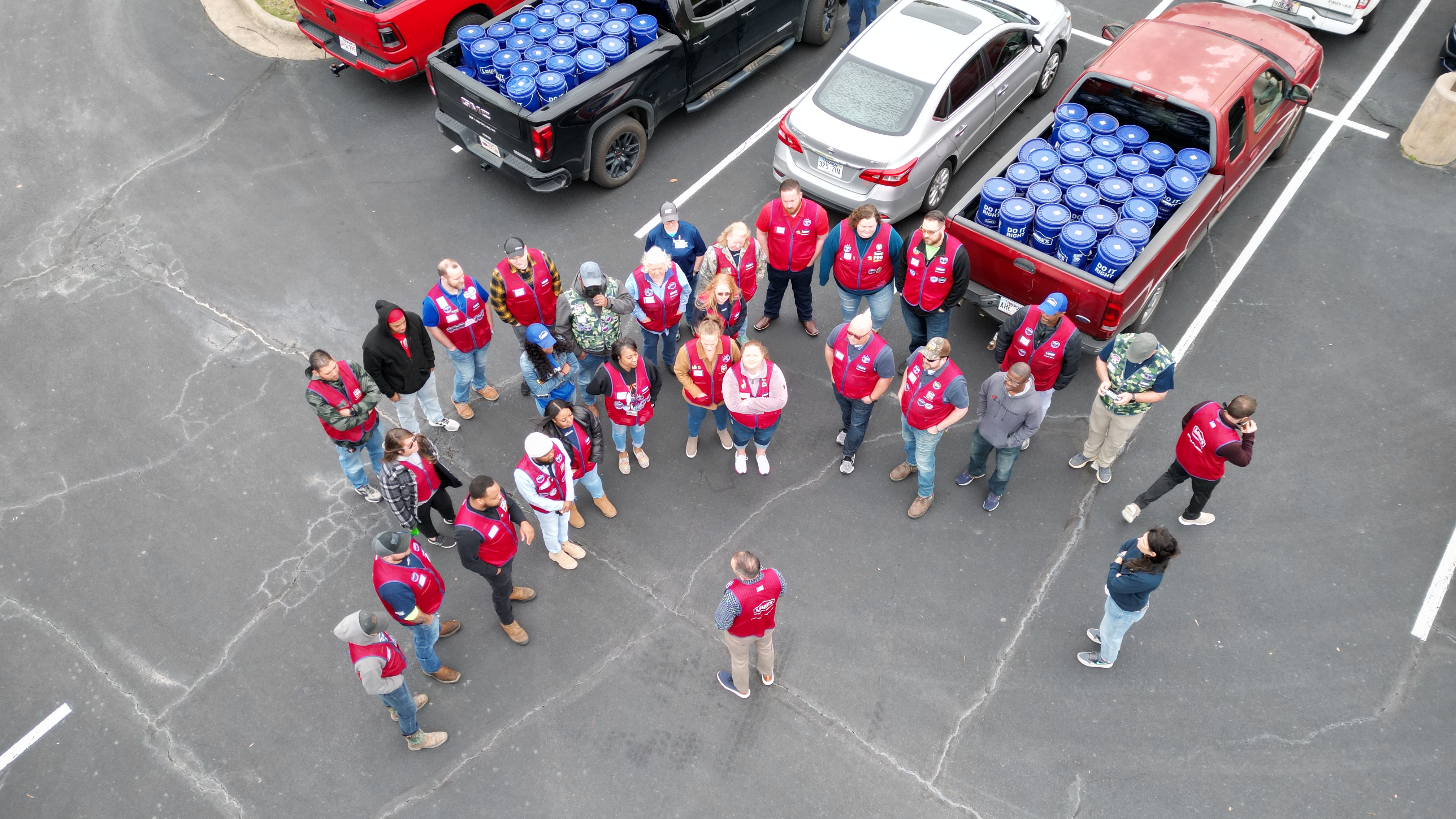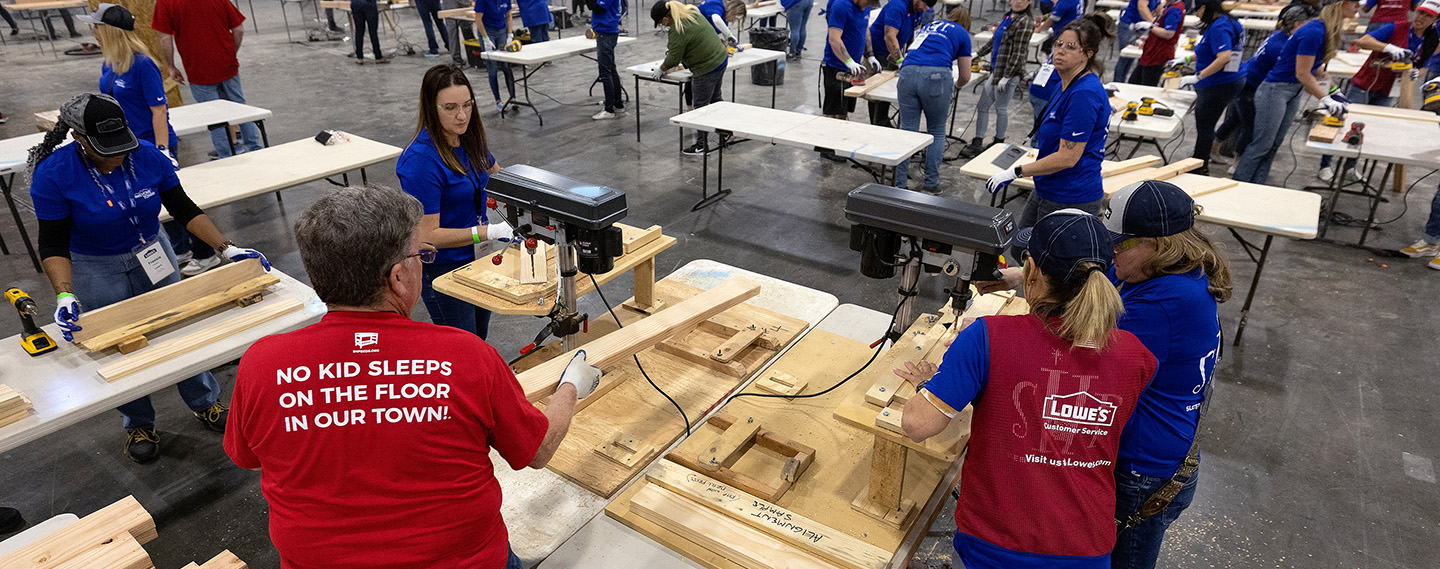From the early days of the pandemic, music has played a big part in uniting us even while we social distance.
Like the Broadway star who performed nightly, singing to his neighbors from his New York City balcony, or the celebrity DJ who hosted “Club Quarantine” parties online or the New Orleans violinist who stood on the sidewalk performing for seniors stuck inside.
Music always has the power to bring us together.
Take it from Chris Ulbricht and his wife Laura Barcelo, who co-own Indianapolis Violins.
“Music can be a distraction from worldly troubles. It can be an important way for people to connect,” Ulbricht said. “Professional musicians have taken a big hit professionally but they’ve continued to practice their craft and express themselves and I think that’s an essential part of human life.”
Added Barcelo: “We feel it’s essential to provide an outlet to enhance people’s quality of life especially when things are so difficult and we are so isolated.”
That’s why the couple has fought so hard to keep their full-service violin shop going this year. But it hasn’t been easy.
“During the pandemic, business slowed down to a trickle and to a stop in the months of April and May,” Ulbricht said. “The phone didn't ring. The streets were quiet outside. It was uncertain to say the least, but it wasn't totally absent.”
They did some business with people in lockdown who suddenly had spare time on their hands and an old violin in the closet. But most of their usual revenue streams dried up. There were no school kids needing to rent instruments, no professional musicians needing repairs.
Their landlord gave them a break on rent but the couple was struggling to fill a big order that would really help the shop’s bottom line. Laura, who moved from Chile to America to study music, has sadly grown accustomed to being turned away when seeking financial help, so she didn’t know what to think when she heard about the possibility of a Lowe’s Local Initiative Support Corporation (LISC) grant.
“Being a minority woman with an accent, I don't always get taken seriously when I go to find funding, or talk to people, or go to the bank,” she said.
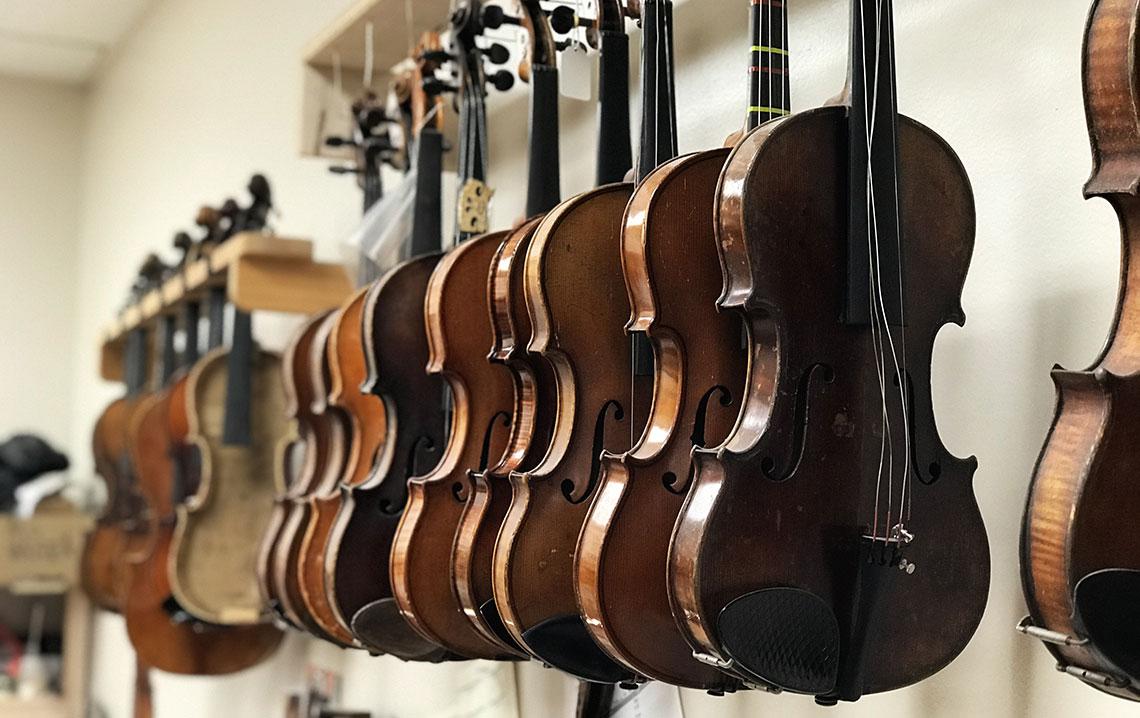
That’s why she and her husband were shocked – and thrilled – when Lowe’s granted them $20,000 in relief.
The small violin shop is one of thousands of businesses across the country benefiting from assistance as Lowe’s continues doling out $55 million in grants to minority and women-owned businesses.
“This was really a huge help for us as a validation that what we're doing is valuable to society and to the community,” Barcelo said. “The grant from Lowe's allowed us to provide some scholarships for rental clients. It also allowed us to fill the order for a local university that we wouldn't have been able to do without the Lowe's grant, and also buy a piece of machinery that saves us days of work. So it's really been an unbelievable blessing, and we couldn't be more grateful.”
While the couple knows they’re not considered essential workers, they do feel like they’re providing an essential service, helping to keep music alive for their Indianapolis neighbors during such a difficult time.
For Barcelo, one particular customer’s story stuck with her.
“We had this nurse come in, and she just unloaded on how hard her day had been, and how happy she was to have her violin to go back home to and just forget about the really terrible day that she had had.”
Barcelo and Ulbricht are just happy they’re still in position to make those dark days a little brighter.
“The pandemic has shown me how fulfilling this life can be,” Ulbricht said, “to participate and collaborate with musicians of all skill levels and with my partner, Laura, in helping to make beautiful music.”
